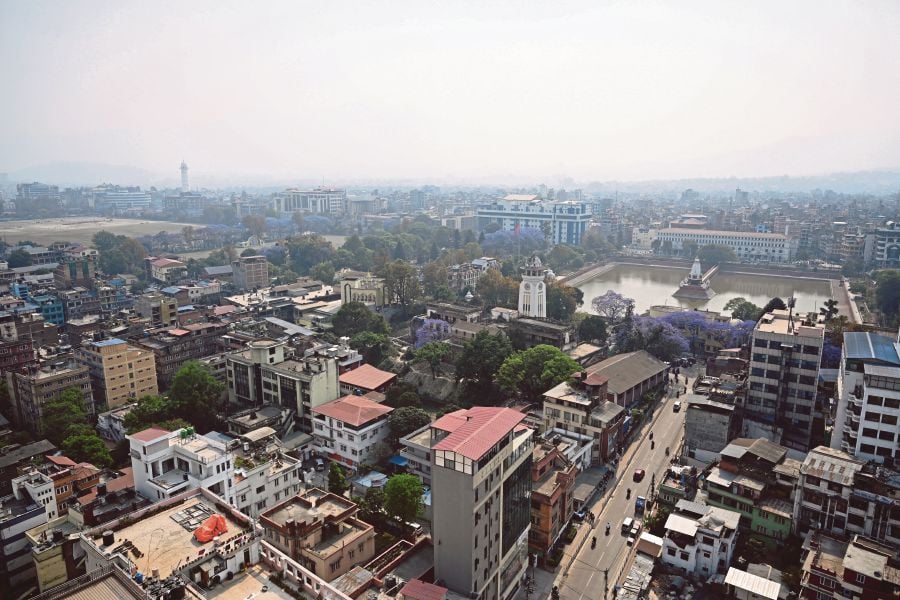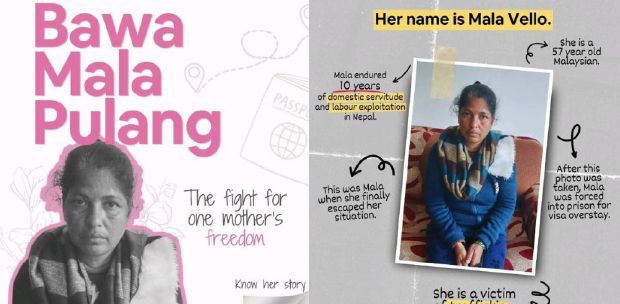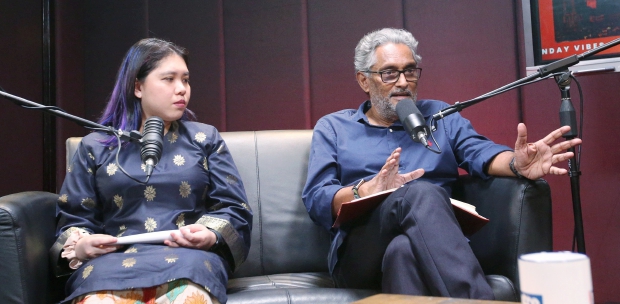KUALA LUMPUR: Despite Mala Vello's case showing signs that she is a victim of human trafficking, a legal loophole in Nepali law has prevented her from being classified as such.
Non-governmental organisation Project Liber8 noted that while Mala had come to Nepal voluntarily, she did not consent to being exploited. Her passport was confiscated, and she was allegedly starved, beaten and forced into domestic servitude for 10 years.
After escaping her captors, she was fined RM88,500 by the Nepali authorities for overstaying, and sentenced to seven years' jail for failure to pay the amount. She had already served two years of her term.
Project Liber8 said the Nepal Human Trafficking and Transportation (Control) Act (HTTCA) only extended to Nepali citizens, and not foreigners being trafficked into Nepal, which means Mala would not be treated as a human trafficking victim in the country.
Project Liber8 programme officers Onysha Boak and Melissa Chin, who were working to bring Mala home, said her case highlighted the human toll of the absence of laws to address the nuances of human trafficking.
"It is unjust for Mala, especially at the age of 57, to have endured two years in prison after going through an ordeal she was forced into.
"According to Malaysia's Anti-Trafficking In Persons Act 2007 and the international standards set in the Palermo Protocol, consent of a trafficking victim is irrelevant when they have been deceived by a trafficker.
"While Mala seems to have consented to her situation, her initial consent was only to be a partner and not for exploitation.
"We found indications that Mala's partner had deceived her, making her believe she would live with him in Nepal.
"We suspect he did this to take advantage of Mala financially, later exploiting her labour and using her relationship with her children to obtain money.
"Moreover, as Nepal's laws do not legislate against trafficking in persons into Nepal, there is a legal loophole that prevents Mala's case from being investigated as (a) trafficking (victim)," they said.
They urged the Foreign Ministry and Nepali government to take urgent action in resolving Mala's case.
They said they had also met with Dewan Negara member Senator Datuk C. Sivaraj and Deputy Minister in the Prime Minister's Department (Law and Institutional Reforms) M. Kulasegaran to present Mala's case and explore efforts to bring her home.
"It is our hope that our combined efforts will allow her to return to Malaysia to spend Deepavali with her family this year.
"It is imperative that all governments have anti-trafficking laws and protections for victims that are up to date, and that we, as an international community, continue to educate ourselves about trafficking," they said.
Several reports had criticised the HTTCA for its limited scope and definition of trafficking in persons.
The United States Agency for International Development, in a 2018 report, said human trafficking under HTTCA was only confined to the buying and selling of a person, taking a person from their place of residence and keeping them in one's possession, or taking to any place within Nepal or abroad, or handing them over to somebody else for the purpose of prostitution and exploitation.
"Consequently, it omits the other actions listed in Article 3(a) of the TIP Protocol and fails to extend to transporting victims from a foreign country into Nepal," it said.
The TIP Protocol refers to the protocol to prevent, suppress and punish human trafficking under the United Nations Convention against Transnational Organised Crime (Untoc). It was adopted by the United Nations General Assembly in 2000.
A 2014 report by Nepali NGO Forum for Women, Law and Development (FWLD) had recommended for the definition for human trafficking in Nepali law to be made more comprehensive to include the transport of individuals for purposes of exploitation and expanded to not only include from Nepal but also to Nepal.
"Law needs to recognise that Nepal can be a country of origin, but also a country of transit and destination," it said.





